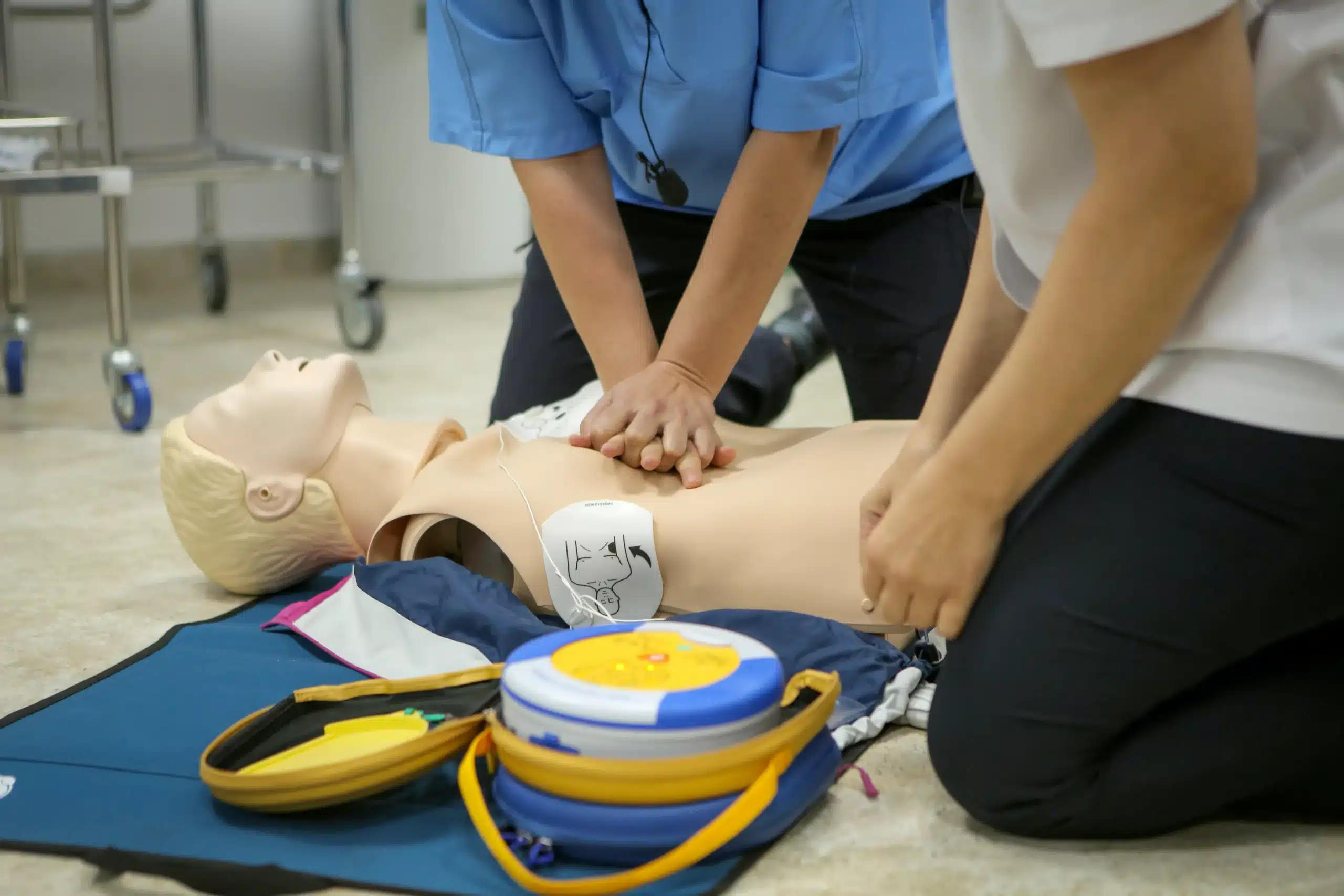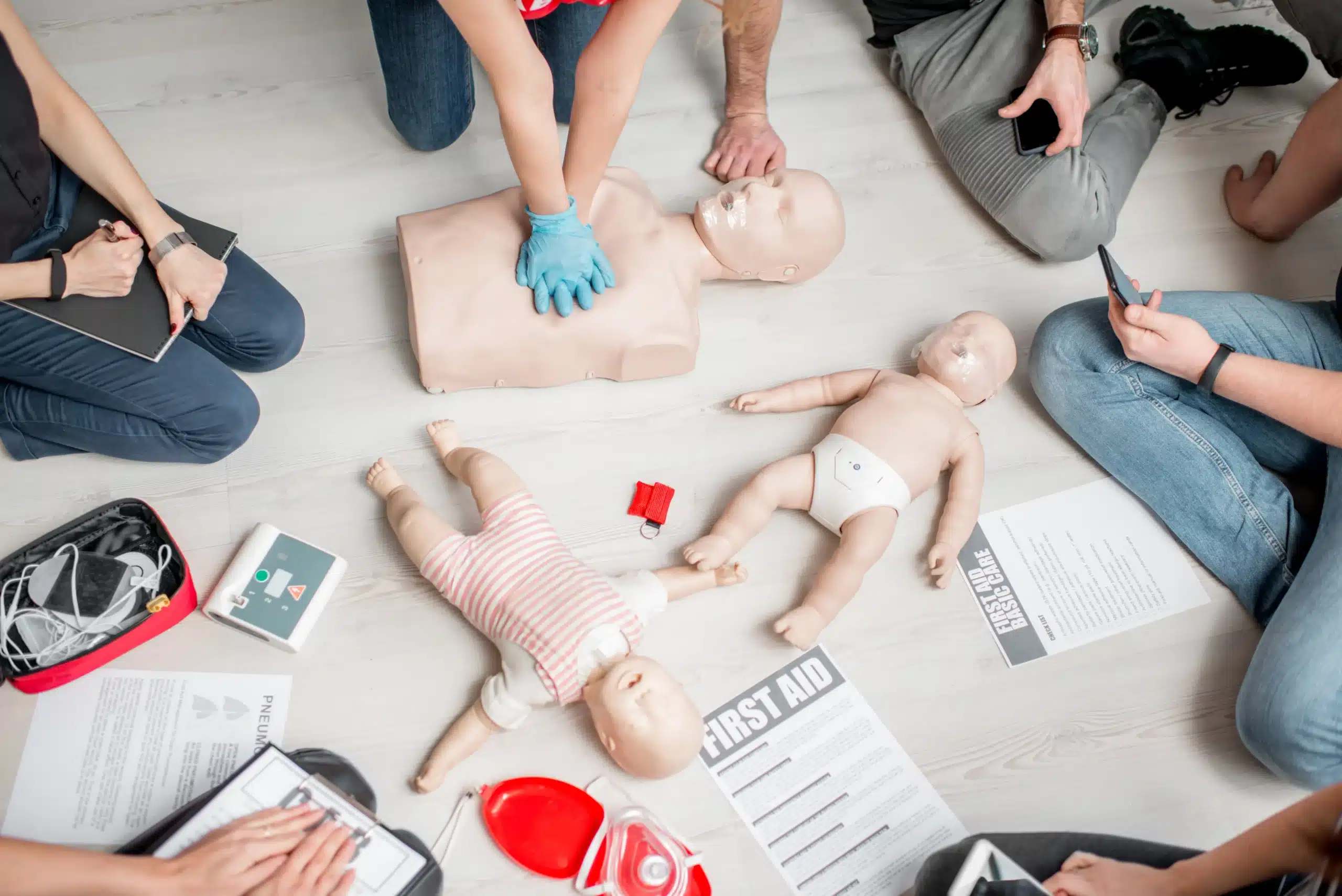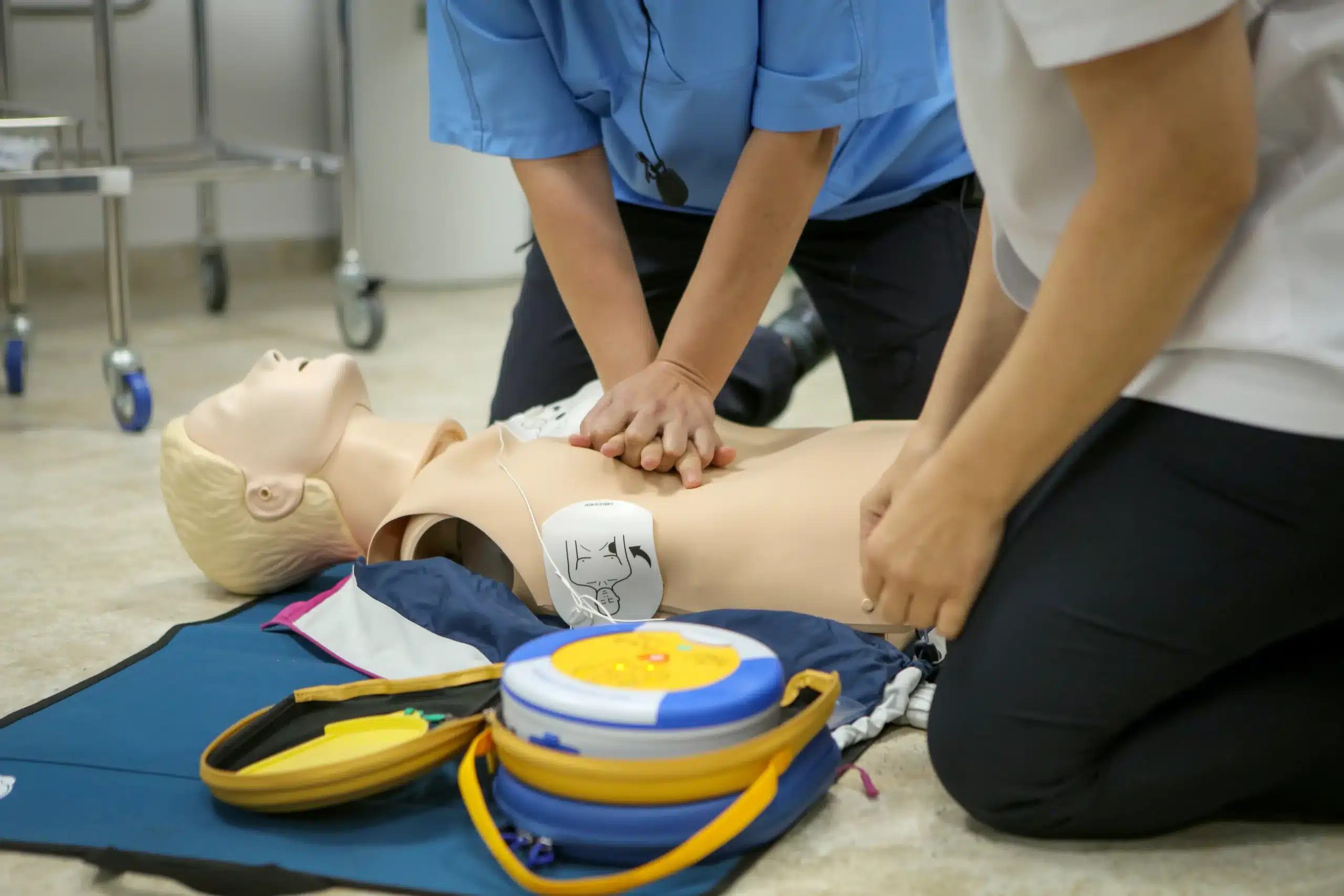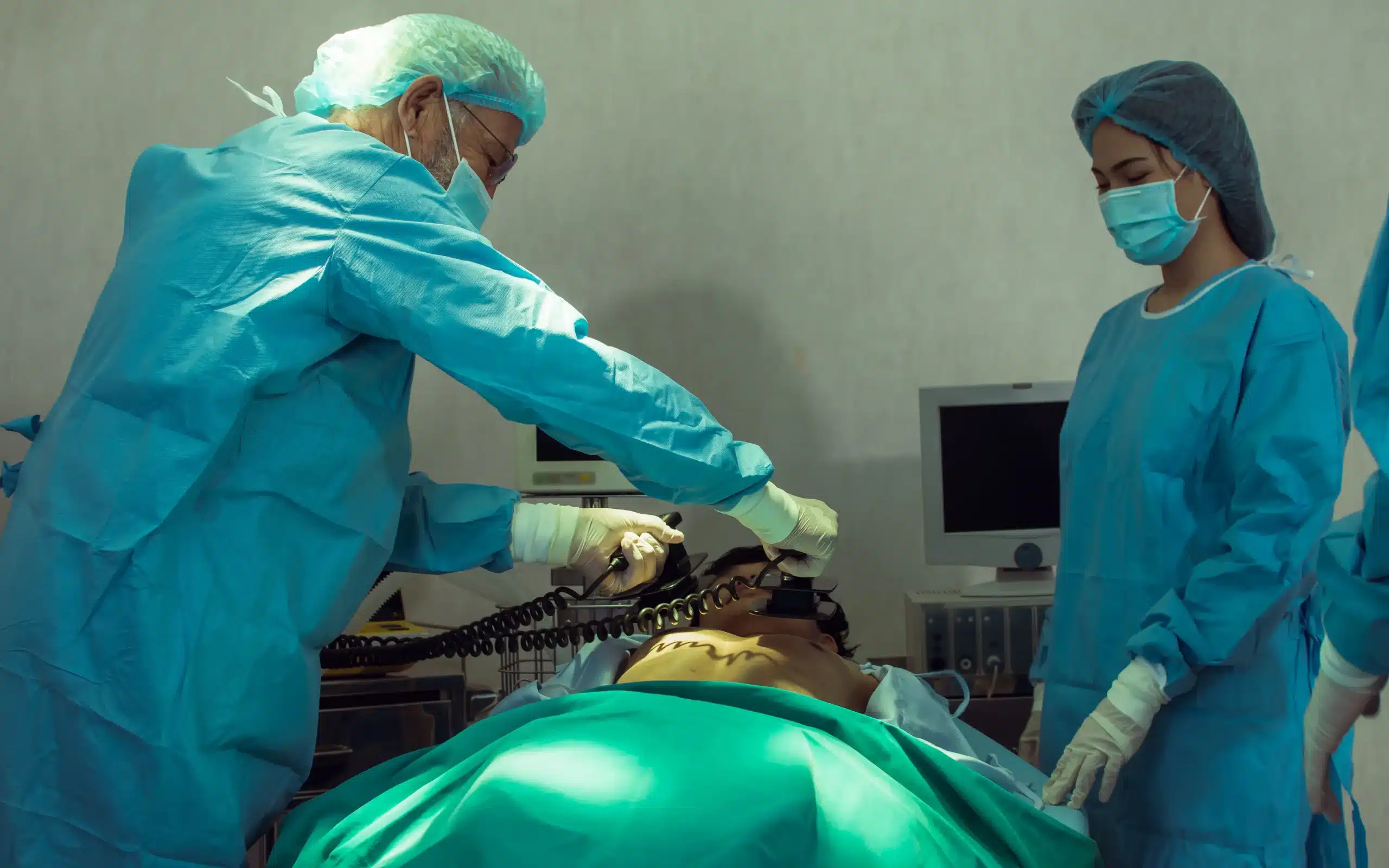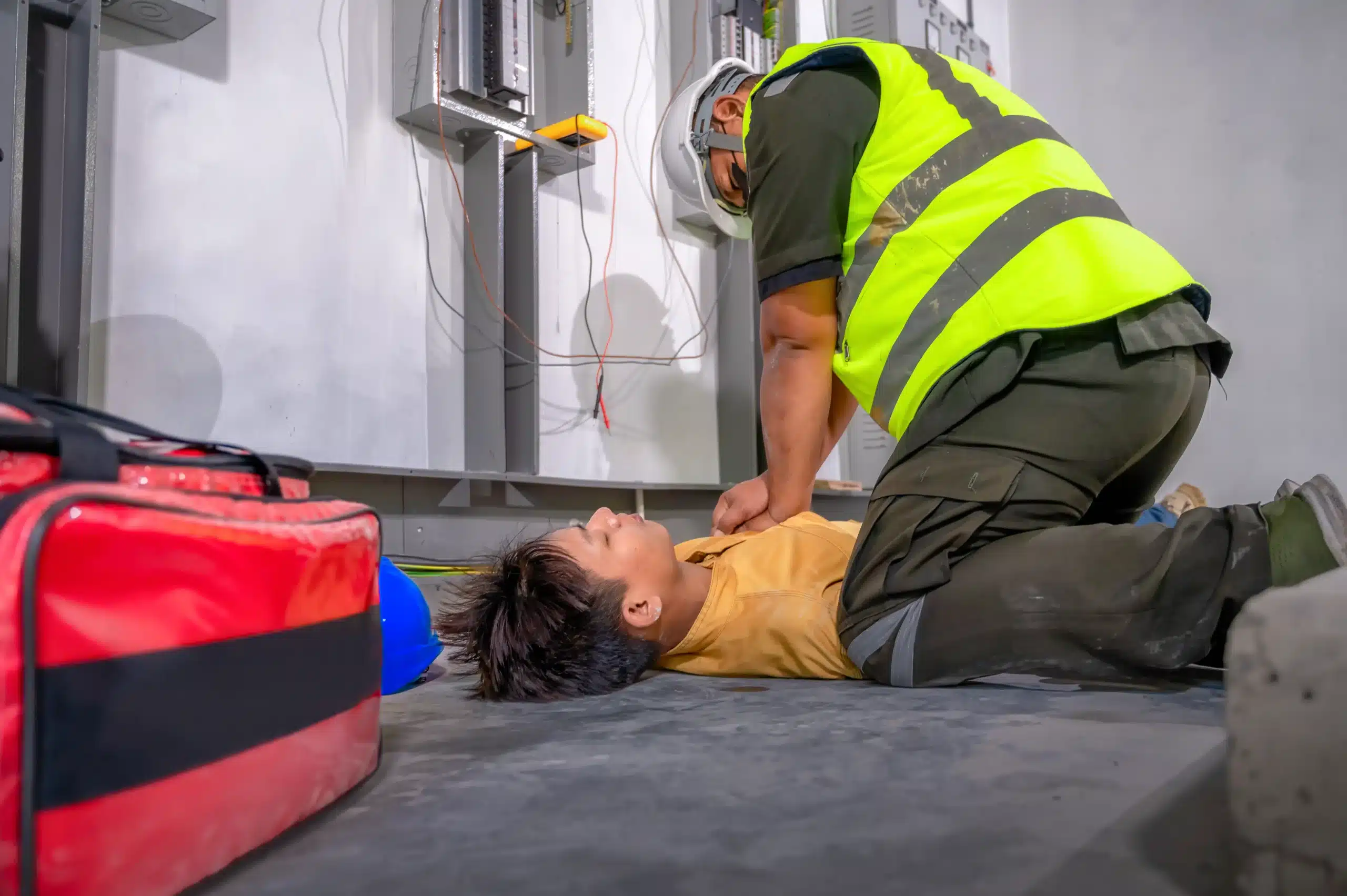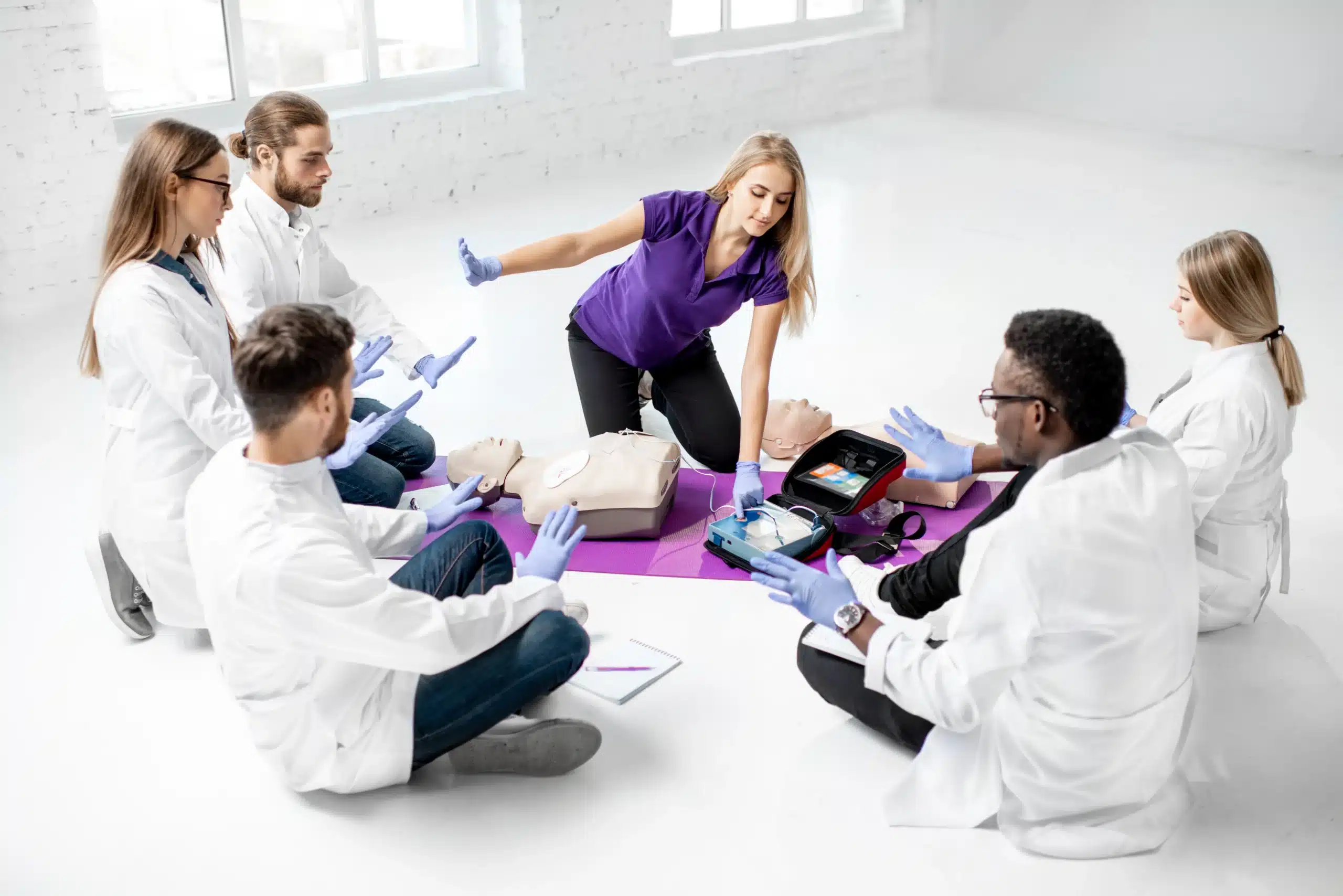Working with infants and children brings unique joys and responsibilities, especially in healthcare. When a child’s life hangs in the balance, having the right skills can make all the difference. That’s where Pediatric Advanced Life Support (PALS) certification comes in. This specialized training empowers healthcare providers to confidently manage pediatric emergencies. If you’re a healthcare professional in Santa Cruz seeking to enhance your skills and provide the best possible care for your young patients, obtaining your American Heart Association PALS in Santa Cruz is a crucial step. This article will guide you through everything you need to know about PALS certification, from course content and cost to registration and the profound impact it has on patient care.
Key Takeaways
- PALS certification equips healthcare providers with essential skills for pediatric emergencies. This specialized training focuses on recognizing and responding to life-threatening conditions in infants and children, ultimately improving patient outcomes.
- Blended learning makes PALS certification convenient and flexible. The combination of online modules and short, in-person skills sessions allows healthcare professionals to fit training into their busy schedules.
- AHA PALS certification is a valuable asset for healthcare professionals. This widely recognized credential demonstrates a commitment to high-quality care and can be beneficial for career advancement.
What is PALS Certification?
Definition and Purpose
Pediatric Advanced Life Support (PALS) is specialized training designed to equip healthcare providers with the skills to manage pediatric emergencies. It’s essential for anyone working with infants and children, particularly in high-stakes environments like emergency rooms, intensive care units, and emergency medical services. The course focuses on recognizing and responding to life-threatening conditions, such as respiratory distress, shock, and cardiac arrest. The ultimate goal of PALS is to improve outcomes for children facing these critical situations. Learn more about PALS Certification.
Why Healthcare Professionals Need PALS
Maintaining a current PALS certification is key for healthcare providers. It demonstrates a commitment to providing high-quality care for children in emergencies. The training strengthens a provider’s ability to work effectively under pressure and ensures they stay updated on the latest treatment protocols and techniques in pediatric advanced life support. This ongoing education is vital for giving young patients the best possible care. Find out more about why PALS training is essential for pediatric emergencies. You can also explore how to renew your PALS certification to maintain your skills.
Find PALS Certification in Santa Cruz
Santa Cruz offers several convenient options for healthcare providers seeking their PALS (Pediatric Advanced Life Support) certification. Whether you’re a nurse, doctor, EMT, or other medical professional, finding the right training center is the first step. Here are a few reputable options to consider:
AHA Training Centers
Safety Training Seminars
Safety Training Seminars is a woman-owned, AHA Training Center conveniently located in Santa Cruz. They offer a comprehensive range of courses, including PALS, ACLS, and BLS. They prioritize customer service and offer a low-price guarantee, making them a cost-effective choice. Their unique RQI program blends online learning with in-person skills sessions for added flexibility. Serving Santa Cruz, Monterey, and Capitola, they make high-quality training accessible. You can easily contact them to learn more.
Santa Cruz CPR Classes
If you’re specifically looking for PALS certification, Santa Cruz CPR Classes focuses on providing AHA-certified PALS training. They offer frequent courses designed to fit busy schedules. Known for their commitment to quality instruction and competitive pricing, they are a solid option for efficient and effective training.
Bay Area CPR
Bay Area CPR offers a broad range of AHA-certified courses, including PALS, throughout the Santa Cruz area. One of their standout features is the option for on-site training, allowing groups to get certified together at their own location. This can be particularly helpful for hospitals, clinics, or other organizations looking to train multiple staff members simultaneously.
Course Schedules
Most training centers in Santa Cruz offer flexible course schedules, often with weekday and weekend options to accommodate various work schedules. Many also offer blended learning formats, combining online coursework with shorter in-person skills sessions. This allows you to complete some of the material at your own pace before demonstrating your skills in a hands-on setting. Be sure to check with your chosen training center for their most up-to-date schedule and course availability.
PALS Course Structure and Content
The PALS certification course blends online learning with hands-on skills practice. This blended learning approach lets you learn the material at your own pace and then demonstrate your abilities in a real-world setting.
Online Learning
The online portion of the PALS course offers in-depth information on a range of pediatric emergencies. This flexible format lets you study when and where it’s most convenient. You’ll cover essential concepts and procedures, building a strong foundation before your hands-on training. Many providers offer fully online PALS courses and certifications.
Hands-On Skills Practice
The PALS Course is designed for healthcare providers who respond to emergencies in infants and children. The hands-on skills session focuses on applying the knowledge you gained online. You’ll practice essential techniques and refine your skills under the guidance of experienced instructors. This portion emphasizes high-performance team dynamics and high-quality individual skills to improve outcomes for pediatric patients. You’ll learn to effectively recognize and intervene in patients with respiratory emergencies, shock, and cardiopulmonary arrest.
Key Topics
The PALS course covers several key areas to prepare you for pediatric emergencies.
Pediatric Assessment
You’ll learn critical techniques for managing pediatric patients, with a focus on the early recognition of respiratory distress, shock, and cardiac arrest. Accurate and rapid pediatric assessment is crucial for effective intervention.
Emergency Management
PALS training equips you with the skills to apply evidence-based protocols for recognizing and treating medical emergencies. You’ll learn how to manage a variety of critical situations, ensuring you can provide the best possible care. This includes understanding how to apply these evidence-based protocols in real-time.
Team Dynamics and Communication
Effective teamwork and communication are essential in emergencies. The PALS course emphasizes a team approach to emergency management for pediatric patients. You’ll develop skills in communication, coordination, and collaboration, learning how to work effectively as part of a team. PALS classes teach healthcare professionals the importance of team dynamics in high-stress environments.
PALS Certification: Cost and Value
Santa Cruz Price Range
In Santa Cruz, PALS certification costs around $290. This covers your online coursework, the skills test at one of our convenient testing centers, and your official American Heart Association PALS provider card. We’ve designed our courses with flexibility in mind. Classes run Monday through Sunday, and you can complete the online portion in about three to four hours, followed by a quick 30- to 40-minute skills test. We also offer a low price guarantee, so you can feel confident you’re getting the best value for this crucial training. Contact us to learn more about our upcoming courses.
What Your Course Fee Covers
Your PALS certification course fee covers a comprehensive program designed to equip you with the skills to confidently manage pediatric emergencies. You’ll learn how to handle a range of critical situations, from breathing problems and heart attacks to injuries specific to children. The course includes plenty of hands-on practice, so you’ll gain practical experience and confidence in a supportive learning environment. Upon successful completion, you’ll receive your American Heart Association PALS provider card, valid for two years.
Time Commitment for PALS Certification
Concerned about fitting PALS certification into your busy schedule? The blended learning format offered by providers like Santa Cruz CPR Classes makes it surprisingly manageable. Let’s break down the time commitment.
Self-Paced Online Modules
The online portion of your PALS certification is designed for flexibility. It typically takes about 3 to 4 hours total, but the self-paced format lets you work through the modules on your own time. Santa Cruz CPR Classes confirms this, indicating their online course takes 3–4 hours. This allows you to study in chunks, fitting the coursework around your existing commitments. Whether you prefer a few focused hours on a weekend or shorter study sessions throughout the week, you’re in control.
In-Person Skills Session Length
After you’ve completed the online modules, you’ll attend a short, in-person skills session. This hands-on component emphasizes practical application and usually lasts between 30 and 40 minutes. This session allows you to demonstrate your skills and receive feedback from a certified instructor. Similar providers, like ACLS Now, also use this structure, with skills practice and testing sessions typically lasting 15 to 30 minutes each. This focused, in-person training ensures you feel confident and prepared to use your PALS skills in real-world situations.
PALS Certification Details
How Long is Certification Valid?
Your PALS certification is valid for two years. This timeframe helps healthcare providers stay current with the latest pediatric advanced life support practices. Maintaining sharp skills is essential for optimal patient care, so adhering to this two-year renewal cycle is key.
Recertification Process
The PALS recertification process is designed to refresh and update your expertise. It typically involves a refresher course and an exam to confirm your continued ability to provide advanced life support. This renewal may also include demonstrating your skills in simulated pediatric cardiac emergencies. Santa Cruz CPR Classes offers a convenient recertification course in a relaxed learning environment. You can explore recertification options and course details on our website.
Why Choose AHA PALS?
Industry Recognition
AHA certification is the gold standard for PALS training. The American Heart Association is a globally recognized and trusted organization, and their PALS certification demonstrates a commitment to high-quality patient care and is often a requirement for many healthcare positions. It’s widely accepted across various healthcare settings and can be valuable for career advancement. Choosing AHA PALS ensures your training aligns with the highest industry standards.
Quality of Training
AHA PALS courses go beyond the basics, equipping healthcare providers with the skills and knowledge to confidently manage pediatric emergencies. The PALS Provider Course focuses on the latest, evidence-based techniques to effectively recognize and intervene in a range of critical situations, from respiratory distress and shock to cardiopulmonary arrest. The emphasis on high-performance team dynamics and high-quality individual skills prepares you to provide the best possible care. PALS training can significantly improve patient outcomes for anyone who might encounter a pediatric emergency.
Prepare for Your PALS Course
So, you’re ready to commit to your PALS certification? Here’s what you need to know before you sign up.
Prerequisites
The PALS course is designed for healthcare providers who regularly respond to emergencies involving infants and children. This includes physicians, nurses, paramedics, respiratory therapists, and other professionals in emergency response, emergency medicine, intensive care, and critical care units. The PALS Provider Course from the American Heart Association builds the skills you need to recognize and manage pediatric emergencies, from respiratory distress and shock to cardiopulmonary arrest. Plan to dedicate about 10–12 hours to complete the course.
Study Resources
Want a head start? Several online resources offer comprehensive PALS training with flexible learning options. ACLS Now, for example, has a fully online PALS course covering essential information on pediatric emergencies. It’s a convenient way to stay up-to-date on the latest evidence-based techniques. The course also emphasizes the importance of teamwork and communication—crucial for positive patient outcomes in critical situations. Rescue One also highlights the importance of PALS training for any healthcare professional who might encounter pediatric emergencies. Being prepared to recognize and treat critically ill infants and children can make all the difference.
Enroll in PALS Certification
Registration
Enrolling in a Pediatric Advanced Life Support (PALS) certification course in Santa Cruz is straightforward. Santa Cruz CPR Classes offers AHA-certified PALS classes with various sessions, so you can find a time that works for you. They focus on delivering high-quality training at competitive prices, making it accessible for all healthcare professionals. The registration process is simple, and you can select blended learning options that combine online coursework with in-person skills testing. The online portion usually takes around 3-4 hours to complete, followed by a brief 30-40 minute skills test at their Santa Cruz training center. You can find more information about the process on the Santa Cruz CPR Classes website.
What to Bring
To prepare for your PALS certification course, gather the necessary materials. Students should call ahead to reserve a PALS Provider Manual, which is essential for the course. Also, keep in mind that the training involves some physical activity. If you have any physical limitations, consider them before enrolling in the course. Contact Safety Training Seminars if you have questions or need to discuss specific accommodations.
How PALS Certification Improves Patient Care
PALS certification, short for Pediatric Advanced Life Support, equips healthcare providers with the knowledge and skills to deliver high-quality care during pediatric emergencies. From recognizing the subtle signs of deterioration to leading a coordinated resuscitation effort, PALS-certified professionals play a crucial role in improving patient outcomes. Let’s explore the specific ways PALS certification enhances patient care.
Better Emergency Response
Imagine a child experiencing a sudden cardiac arrest or respiratory distress. Seconds matter in these critical situations. PALS-trained professionals are equipped to respond swiftly and effectively. PALS training emphasizes rapid assessment, allowing providers to quickly identify the underlying cause of the emergency and initiate appropriate interventions. This training instills confidence and reduces hesitation, enabling healthcare providers to manage emergencies with greater efficiency and improve the chances of a positive outcome. Whether it’s recognizing and treating shock or managing a compromised airway, PALS-certified professionals bring a higher level of expertise to emergency situations. This preparedness can significantly impact patient survival and long-term recovery. At Safety Training Seminars, our PALS certification course follows the latest evidence-based guidelines from the American Heart Association, ensuring our students receive the most up-to-date training available.
Enhanced Pediatric Care Skills
Beyond emergency response, PALS certification enhances the overall quality of pediatric care. The PALS Provider Course covers a wide range of topics, including pediatric assessment, airway management, and fluid resuscitation. These skills are essential for any healthcare professional working with infants and children, even outside of critical care settings. By mastering these skills, providers can detect and address potential problems early on, preventing escalation and minimizing the need for more invasive interventions. PALS certification also emphasizes the importance of teamwork and communication. Effective communication within the healthcare team is crucial for coordinating care and ensuring everyone is on the same page. This collaborative approach leads to more efficient and effective treatment, ultimately benefiting the patient. PALS training empowers healthcare professionals to provide comprehensive and confident care, improving the overall health and well-being of their young patients. Contact us today to learn more about our PALS certification courses in Santa Cruz.
Related Articles
- Pediatric Advanced Life Support (PALS) Courses in Monterey – Santa Cruz CPR Classes
- Online PALS Classes in Santa Cruz: Your Guide – Santa Cruz CPR Classes
- PALS Certification in Capitola: Find the Right Course – Santa Cruz CPR Classes
- PALS Renewal Courses in Santa Cruz: Your Easy Guide – Santa Cruz CPR Classes
- AHA PALS Classes in Santa Cruz, CA – Santa Cruz CPR Classes
Frequently Asked Questions
What is the difference between PALS, BLS, and ACLS?
BLS (Basic Life Support) teaches fundamental life-saving techniques, including CPR. ACLS (Advanced Cardiovascular Life Support) focuses on advanced interventions for adults, while PALS (Pediatric Advanced Life Support) specifically addresses the unique needs of infants and children during medical emergencies. Each certification builds upon the previous level, with PALS requiring a strong foundation in BLS.
How often do I need to renew my PALS certification?
PALS certification is valid for two years. Recertification involves completing a refresher course and passing an exam to ensure your skills and knowledge remain current.
What if I have physical limitations? Can I still take the PALS course?
Absolutely! Contact the training center beforehand to discuss any physical limitations you may have. They can help determine appropriate accommodations to ensure you can fully participate in the course.
What career opportunities are available with PALS certification?
PALS certification is highly valued in many healthcare settings, particularly those involving infants and children. It opens doors to opportunities in emergency rooms, intensive care units, pediatric wards, and emergency medical services. Many employers require PALS certification for positions involving direct patient care.
What if I don’t live in Santa Cruz? Can I still take a PALS course through Safety Training Seminars?
While Safety Training Seminars’ primary location is in Santa Cruz, they serve a wider area, including Monterey and Capitola. Contact them directly to discuss your location and explore available options, including potential on-site training for groups.
